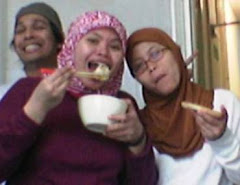Thursday, April 05, 2007
Culinary Culture: Mediterranean
The Normans and the Republic of Venice, which had colonies as far away as Alezandria, also introduced their cooking styles to the Mediterranean shores. One of the greatest unifying forces was the Ottoman Empire, which lasted for 500 years until its collapse at the end of World War I. It spread a style of cooking, drawn from its conquered territories, to all the nations in the empire.
Apart from empires and colonists, movements of populations contributed to an interchange of cooking styles: the Moors returned to North Africa after their expulsion from Spain, Tunisians moved to Palermo to build the cathedral, Sicilian peasants were brought to Algeria by the French colonists to work the land, troubadours and jongleurs from southern France were seen in Italy and Catalonia, and spice merchants and itinerant traders were seen everywhere. More recently, the French pieds noirs, resettling in the south of France, and immigrant workers from North Africa, have had an enormous impact.
A surprisingly unified culinary culture was woven from these disparate threads: Andalusia, Provence, and southern Italy have more in common with their maritime neighbors than with the northern regions of their own countries. Throughout the Mediterranean cooks use the same clay pots, the same wood-burning ovens, mortars and pestles, skewers, and grills. You find similar dishes: cooked vegetables preserved in olive oil and eaten cold, stuffed vegetables, fluffy vegetable omelettes, rice dishes, creamy puddings, almond pastries and tomato sauce, the signature of Mediterranean cuisine.
Wednesday, February 21, 2007
Welcome to My Cooking Studio!
I arrived at The Hague, Netherlands, on September 1st, 2005. I took my master degree in developing studies at the Institute of Social Studies (ISS). Actually, there are many abreviations for ISS, other than Institute of Social Studies. It can be that cleaning service company in the hague :) or "Institute Sekolah Sinting" (according to Ery), or "Institute Senang Senang " (according to us :P)
Anyway, ISS is a great place to learn and to interact with other people from all around the world. Indeed, ISS is a micro world within Den Haag, with 185 students from at least 60 countries all over the world. Sure you would instantly feel the multiculturalism atmoshphere there. Different people, different cultures and traditions, including different taste of foods and drinks! What an experience!
With all those schedules, assignments, group works, essays, exams bla bla bla the boring stuffs of course :) still we must find some time to do some things that we really loveeeee to do for: cooking experiments! trying something new from my neighbours or making my own recipes. And this blog records those cooking experiments during my study in The Hague and when I got back to Indonesia.
Hope you will enjoy the recipes :-)
cheers,
Herni S. Nurbayanti
.jpg)